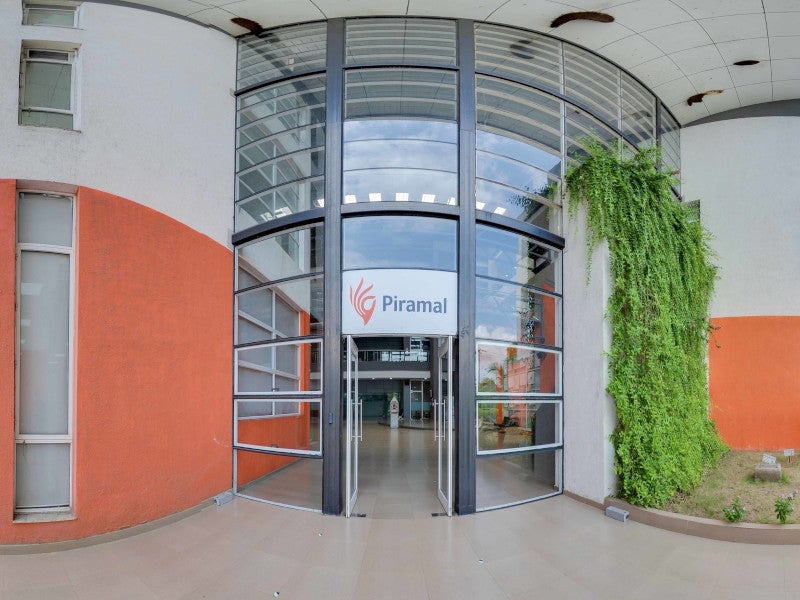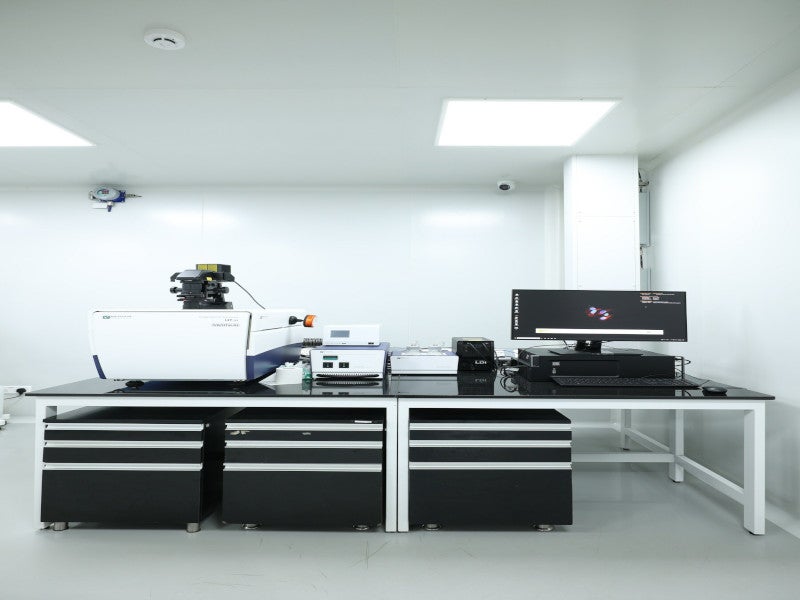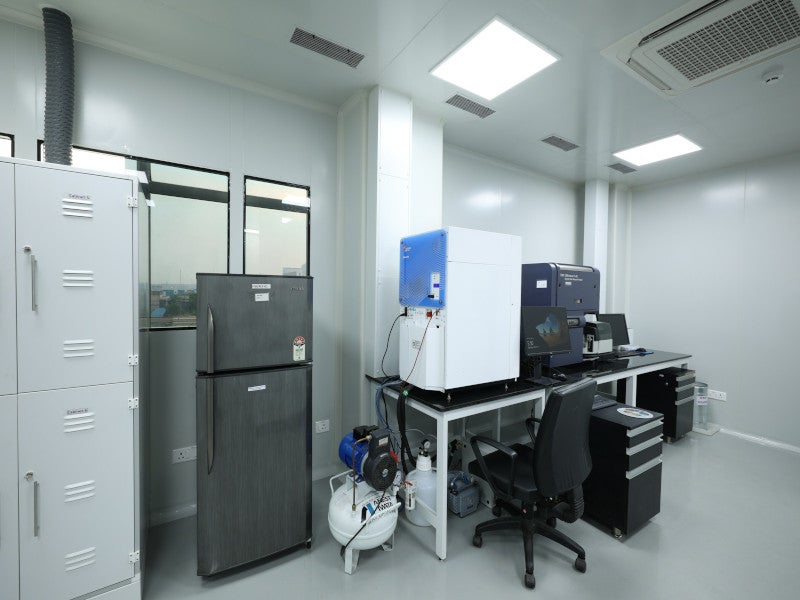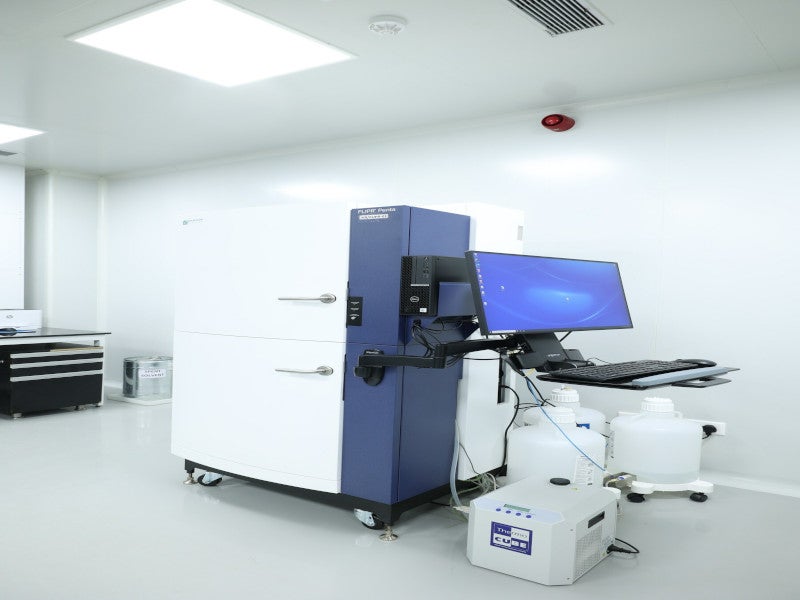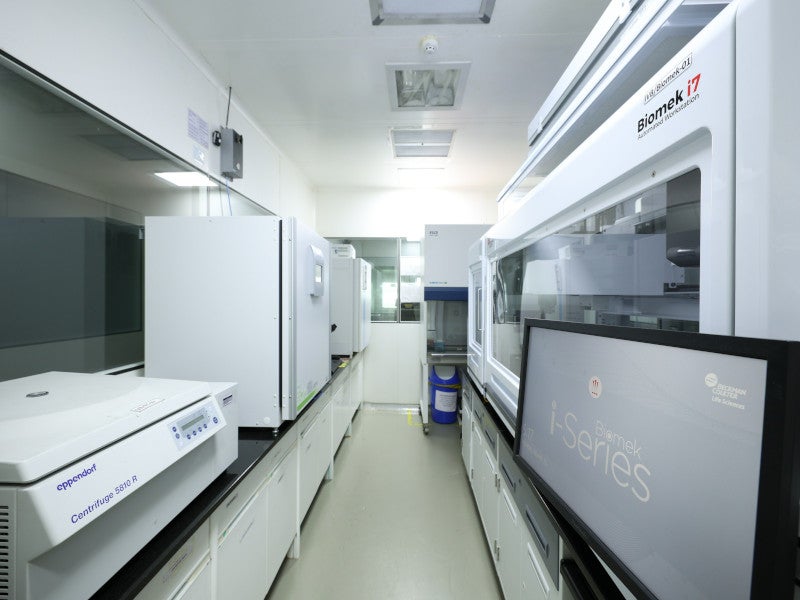Piramal Pharma Solutions’ (PPS) Piramal Discovery Solutions (PDS) facility in Ahmedabad, India, was expanded with the addition of a high-throughput screening facility in October 2023.
Announced in January 2022, the facility was developed with a multimillion-dollar investment to significantly improve its primary and secondary screening capabilities for compounds developed at the facility.
The expansion integrated the PDS facility’s existing chemistry capabilities with biology services, augmenting the experience for drug discovery services clients.
Ahmedabad PDS facility expansion details
PPS’ state-of-the-art facility incorporated new high-throughput screening technology, which allows the company to assess and screen 1,000 compounds a week.
It utilises several assay platform technologies, including a fluorescent imaging plate reader (FLIPR), fluorescence polarisation, absorbance, luminescence/electrochemiluminescence, an alphascreen, a lantha screen, flow cytometry, and high-content imaging, homogeneous time-resolved fluorescence, and time-resolved fluorescence resonance energy transfer.
The platforms are useful for a wide range of objectives, including kinases and G-protein-coupled receptors, among others.
The expansion improved the PDS facility’s drug discovery platform by adding in vitro biology capabilities to its existing services.
The integration of chemistry and biology services at a single site significantly improved drug discovery cycle times.
In vitro biology services details
Piramal’s in vitro biology services are tailored to support clients in their preclinical drug discovery endeavours, which include various stages such as assay development, hit identification, hit-to-lead transition, and lead optimisation.
A comprehensive range of services, including high-throughput screening, multiplex assay development, primary and secondary functional assays, high-content screening, and selectivity testing are provided.
The assay team is capable of both developing and screening compounds, utilising advanced techniques such as miniaturisation of assays with 96 and 384-well plates.
To ensure reliability, the assays undergo rigorous validation processes using tool compounds, with established quality control measures, including signal-to-noise ratio, Z’-prime, uniformity, and reproducibility.
Instrument details
Some of the key instruments offering in vitro services include liquid handling systems and piping stations such as Echo 650 (Acoustic Dispensing), Integregra, Biomek i7 (Beckman Coulter) integrated with PHERAstar, and a 96-well microplate washer.
Key multimode plate readers include Polarstar, CLARIOstar, Pherastar FSX, and FLIPR Penta, all developed by BMG Labtech.
High-content screening instruments include ImageXpress Confocal Microscope HT.AI (Molecular Devices) and Incucyte SX5. The MESO QuickPlex SQ 120MM (MSD) and the LSR Fortessa X20 (BD) with 18 colours are the instruments used in multiplexing systems. Bioanalytical instruments include HPLCs (Agilent, Shimadzu) and LC-MS/MS.
Details of the existing Ahmedabad PDS facility
Located in a Special Economic Zone in Gujarat, India, the Ahmedabad PDS facility offers contract research services for early-stage drug discovery to biopharmaceutical companies, biotech companies, and academic institutions worldwide.
Covering an area of more than 10,000m², the modern facility houses more than 21 green and secure modular lab units (12 fume-hood reconfigurable modules), a write-up area and a research campus that can accommodate more than 350 scientists. It features a fully equipped kilo-lab with 200-litre, 100-litre, 50-litre, and 20-litre jacketed cylindrical glass reactors, each with temperature support.
The facility incorporates technologies such as high-field nuclear magnetic resonance, liquid chromatography-mass spectrometry/high-performance liquid chromatography/gas chromatography and supercritical fluid chromatography for the synthesis of discrete compounds, focused series, building blocks, common intermediates, and small molecule new chemical entities.
The site offers other services such as drug discovery, analytical support services, non-good manufacturing practice kilo lab, in vitro screening, and absorption, distribution, metabolism and excretion services. It also provides synthetic and medicinal chemistry services, including chiral purification, scale-up and route scouting.
The Ahmedabad PDS facility supports small-scale development to clinical manufacturing from milligram to kilogram scale, using an integrated approach. It also has an explosion-proof area for handling non-aqueous solvents.
Marketing commentary on Piramal Pharma Solutions
PPS is a contract development and manufacturing organisation and an arm of Piramal Enterprises, with operations in Europe, Asia, and North America.
Services offered by the company include the development and production of highly potent active pharmaceutical ingredients, antibody-drug conjugations, peptide products and services, and potent solid oral drug products. The company also offers sterile fill/finish, finished dosage manufacturing and late life cycle management.
PPS also manufactures and supplies commercial formulations for oral solids, including modified-release formulations, conventional tablets, press-coated tablets, and hard gelatine capsules, from its facilities located in Sellersville and Morpeth in the US and Pithampur, India.
Its Sellersville facility provides packaging of liquids, creams, and ointments while the Lexington site in the US supplies sterile injectables.
The company has more than 700 scientists supporting its research and development efforts and its facilities have received accreditations from regulatory organisations in the US, Japan, and Europe.

